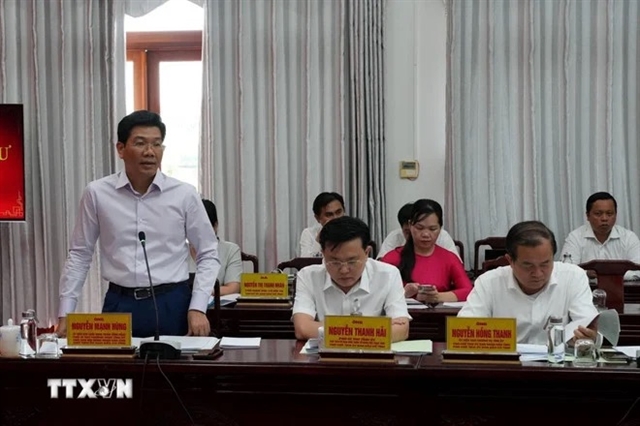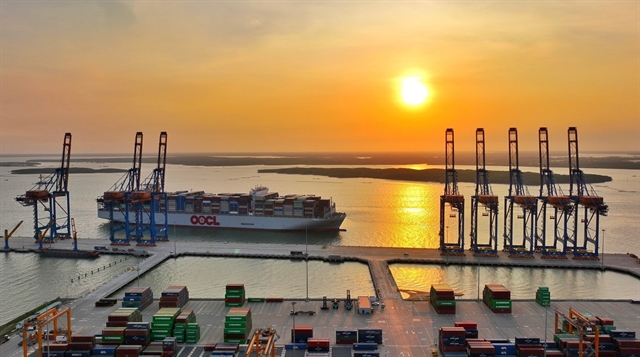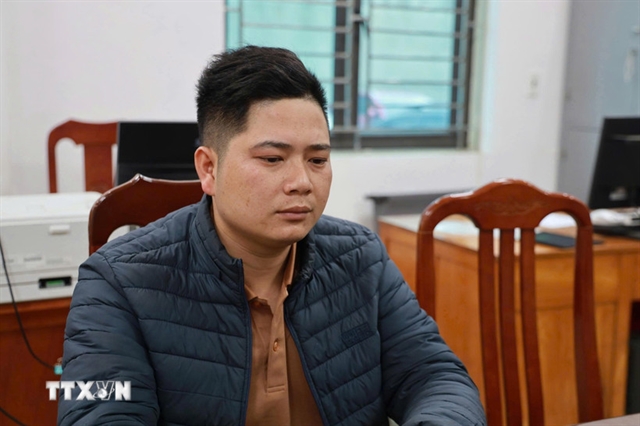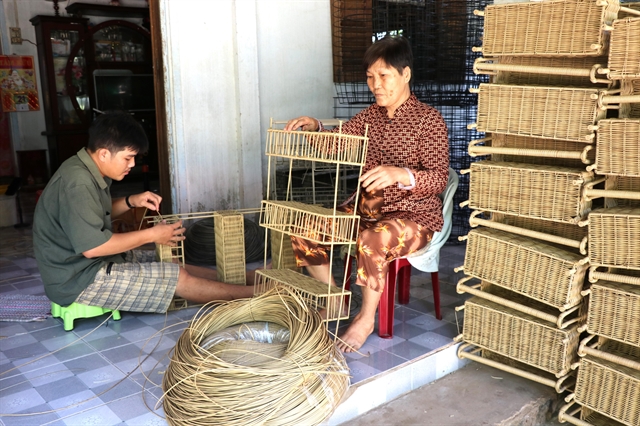 Politics & Law
Politics & Law


|
| OOCL Spain, the world’s largest super container ship with a loading capacity of 24,188 TEU, docked at the Gemalink International Port belonging to the Cái Mép - Thị Vải International Port in the southern province of Bà Rịa - Vũng Tàu. — VNA/VNS Photo Huỳnh Sơn |
HÀ NỘI — The Government has ordered all ministries, sectors and localities to overcome every difficulty and challenge to implement the 2024 socio-economic development plan.
The order was made under the newly-issued Government’s Resolution 01/NQ-CP on main tasks and solutions to implement the socio-economic development plan and State budget estimates this year.
Under the Resolution, 2024 is expected to be a year of acceleration and breakthrough, a year with key importance in successfully carrying out the 2021-25 socio-economic development plan.
Therefore, the Government told the ministries, sectors and localities to deploy the plan with six focuses.
Accordingly, the ministries, sectors and localities have to strictly comply with and synchronously, drastically and effectively implement the Resolution of the 13th National Party Congress as well as other resolutions and conclusions of the Party Central Committee, the National Assembly and the Government.
They were also told to promote the strength of great national unity, arousing the spirit of patriotism and the desire to develop a strong and prosperous country; improve the responsibility of heads in law formulation and enforcement; promote administrative reform and national digital transformation; build a healthy cultural lifestyle, prevent the deterioration of morality and lifestyle; and firmly protect independence, sovereignty, unity and territorial integrity of the fatherland, maintaining a peaceful and stable environment for rapid and sustainable development.
To do that, the Government also issued 12 groups of solutions.
The first group of solutions is promoting economic growth, maintaining macroeconomic stability, controlling inflation and ensuring major balances. Specifically, the Government will continue to operate flexibly and timely monetary policies, fiscal policies and other policies, contributing to macroeconomic stability, supporting economic growth and stabilising the currency market, foreign exchange and banking system.
The second group of solutions is continuing to review and improve institutions, laws, mechanisms and policies associated with raising the effectiveness of law enforcement; promoting simplification of administrative procedures and business regulations.
The third group of solutions is boosting the construction and development of a synchronous, modern, strategic infrastructure system, especially systems of expressway, airport, seaport, urban infrastructure, inter-regional infrastructure, digital infrastructure, social, health and educational infrastructure.
The Government will speed up the progress of major national transport infrastructure projects such as the eastern North-South Expressway, Belt Road No 4 of Hà Nội Capital Region, Belt Road No 3 of HCM City, expressways of Khánh Hòa - Buôn Ma Thuột, Châu Đốc - Cần Thơ - Sóc Trăng, Biên Hòa - Vũng Tàu, Tuyên Quang - Hà Giang; Long Thành International Airport; and Terminal 3 of Tân Sơn Nhất International Airport.
Additionally, it will soon complete upgrading maritime channels into Cái Mép - Thị Vải International Port (a deep-water port complex) and Nam Nghi Sơn Port; put into operation the elevated section of Nhổn – Ga Hà Nội urban railway line; and Bến Thành - Suối Tiên urban railway line. It will strive to put into operation at least 130km of expressways this year and complete the goal of having 3,000km of expressways by 2025.
The fourth group of solutions is restructuring the economy associated with innovating growth models; improving competitiveness; developing rapidly and sustainably; strengthening the development of digital economy, green economy and circular economy.
The fifth group of solutions is developing high-quality human resources, especially human resources in the fields of biotechnology, artificial intelligence, semiconductor chips associated with promoting scientific research, technology and application development, further promoting startup innovation.
It has been striving to have 50,000-100,000 high-quality human resources for the semiconductor chip manufacturing sector by 2025 and 2030.
The Government also plans to review, amend, supplement the legal framework to enhance the development of science, technology and innovation; developing the national innovation system in a business-centred direction.
Besides, six other groups of solutions include comprehensively developing cultural and social fields; responding to climate change, water security and natural disaster prevention; promoting the development of regional connectivity; consolidating national defence and security; deploying synchronously, comprehensively and effectively foreign affairs and international integration activities. — VNS




